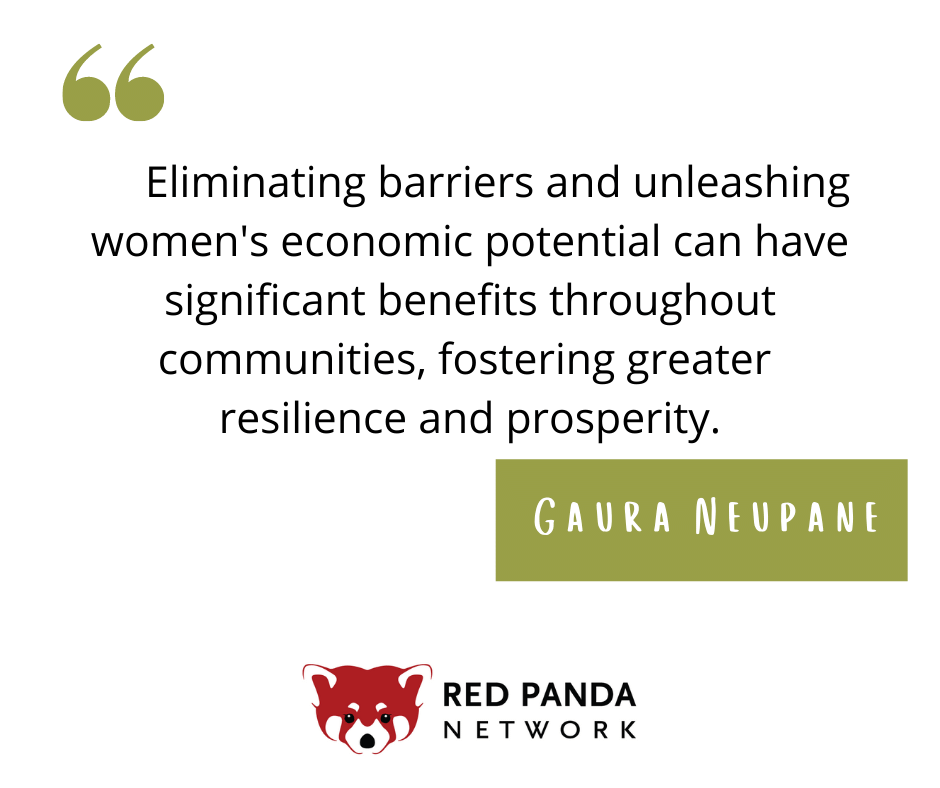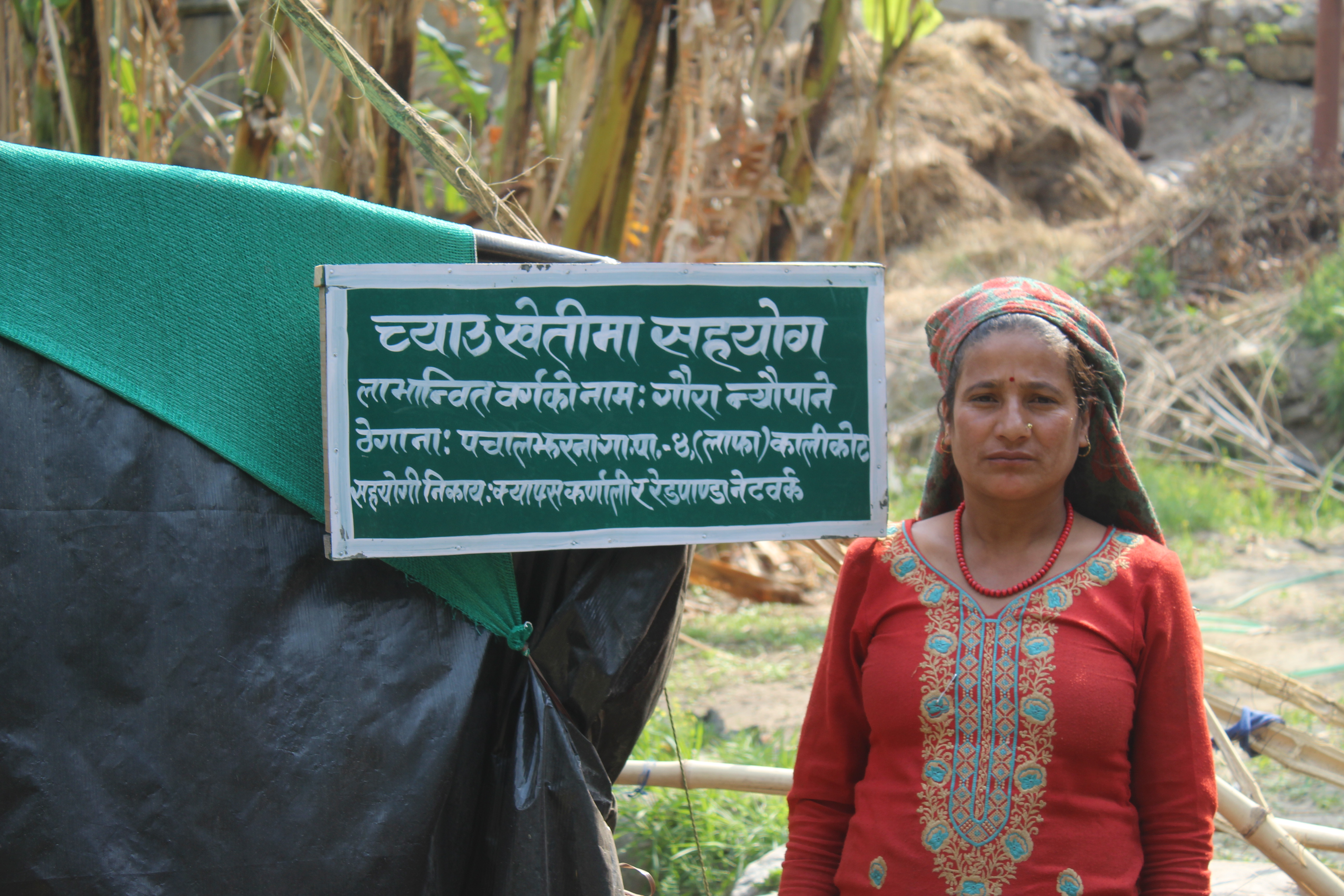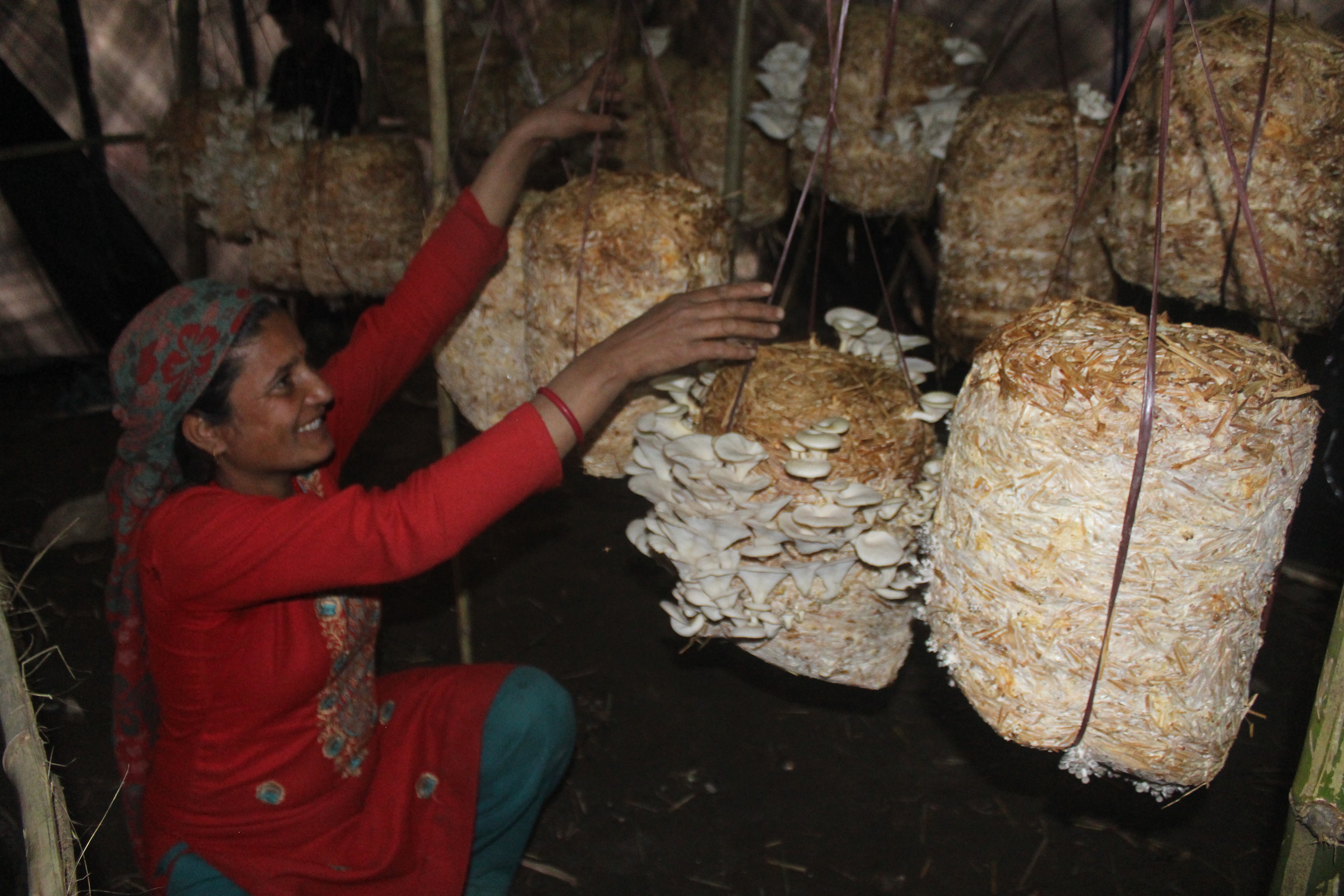Financial Freedom for Women in Red Panda Range
From household chores to entrepreneurship, women in rural Nepal find economic empowerment and environmental stewardship.
Gaura Neupane grew up in a small village in Kalikot district, western Nepal. This is a remote and rural place; a patchwork of agriculture and mountain forests make up the landscape.
The setting of this story is significant. Western Nepal constitutes more than half of the nation’s habitat available to red pandas, most of which is unprotected. For people, it is a place where poverty debilitates daily life while limiting opportunities for a better future. For women living here, gender stereotypes and inequalities are prevalent and deeply rooted; where a woman's voice and passion is often stifled.
As a child, Gaura was the second of eight siblings. She was married when she was only 15 years old.
Like other women in rural Nepal, Gaura’s life has been restricted by oppressive norms that say women can’t perform the same tasks and have the same responsibilities as men. Their role is often confined to household chores and child-rearing and women are often not involved in family or community decision-making.
Agripreneur, Gaura Neupane, with board that says "Mushroom Farming Support".
Now, Gaura is forty years old. Despite her efforts to break through these cultural barriers and support her family, her options have been limited by a lack of education, economic, and leadership opportunities.
This is quickly changing for Gaura.
Red Panda Network (RPN) is committed to challenging gender injustices and providing critical livelihood opportunities for women in Nepal’s red panda range. We launched our campaign to Empower Women During Covid-19 in March of 2021 in celebration of International Women’s Day (IWD) and Women’s History Month. Thanks to our supporters, we have already been able to recruit four new female Forest Guardians in eastern Nepal!

New Forest Guardian, Muna Gurung, from Chintapu Community Forest, Ilam, eastern Nepal.
Prior to the IWD campaign, in 2020, the project “Community Enterprise for Collective Vegetable Production and Marketing” was jointly initiated by RPN and the World Food Programme (WFP), as well as our local partner organization, in Palata-9 and Pachal Jharna-4 (Lafa), of Kalikot district.
The project area lies in the Karnali Conservation Landscape (KCL) which is critical to protecting a viable population of red pandas in western Nepal. It is also a place where climate-induced disasters — such as drought, landslides, and wildfires — can frequently occur. This impacts the disadvantaged rural communities of the KCL which are highly dependent on forest resources and ecosystem services for their well-being. Unfortunately, this dynamic puts unsustainable pressure on the environment and makes local people vulnerable when biodiversity is lost or when disaster strikes.
The goal of this intervention is to alleviate pressure on forest resources while building resistance in KCL communities. Central to our success are initiatives that provide opportunities for economic and social empowerment among local women who gain financial independence and increased autonomy. RPN, WFP, and local partners have provided financial and technical support.
Gaura Neupane cultivating mushrooms.

Determined to achieve financial freedom, Gaura worked diligently to become the first female entrepreneur in her community. She began mushroom cultivation with no prior experience. RPN supported Gaura — and ten other local women — with poly-house material and training in fungiculture (mushroom cultivation) techniques and poly-house construction.
Now she is an agripreneur who sells 5kg of mushrooms a day! Gaura's sales have doubled since she started her business and she is organizing collectives and extending her market to reach bigger towns. From household chores to entrepreneurship, she proved her capability to thrive despite the adversity she faced as a woman in rural Nepal.
Gaura is a true inspiration to other women in her community. “Eliminating barriers and unleashing women's economic potential can have significant benefits throughout communities, fostering greater resilience and prosperity", Gaura states.



